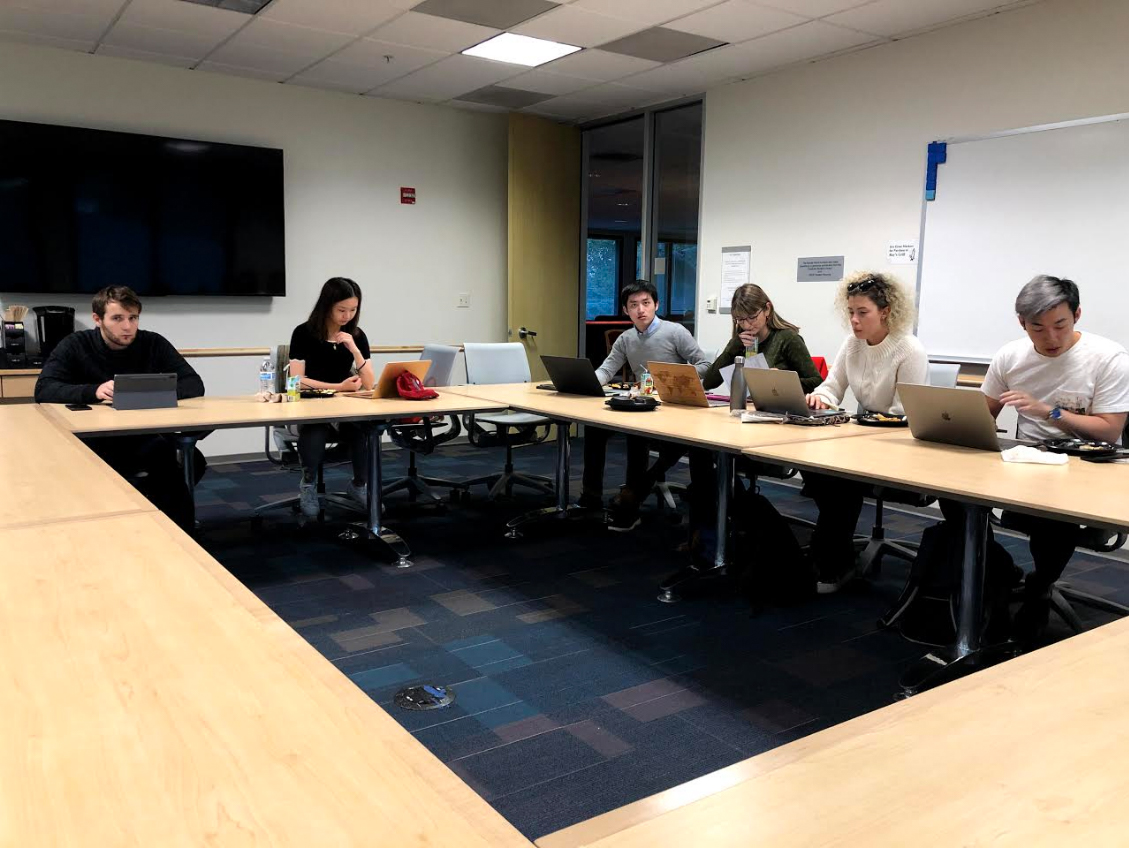The Graduate Student Committee (GSC) convened Wednesday evening to discuss issues surrounding the investment of Stanford Student Enterprises (SSE) in fossil fuel corporations and the possibility of free meal swipes for graduate students.
Ethical investments
SSE Analyst Richa Gupta ’21 presented work by the Ethical Investment Task Force to shift from primarily financially-driven investing to more socially-conscious investing. They are planning to reinvest the Cardinal Fund, which is operated by the financial arm of the Associated Students of Stanford University (ASSU) and comprises 5% of ASSU investments, or $1.2 million.
Through ethical financing, SSE hopes to invest in environmentally- and socially-conscious companies and organizations, according to Gupta.
“We want to incorporate impact in how we use our capital,” she added.
SSE conducted focus groups last month to learn which organizations the student body wanted to divest from. Students expressed they wanted SSE to pull funding from companies associated with fossil fuels, private prisons, Immigration and Customs Enforcement (ICE), poor labor laws, firearm and powerful pharmaceutical companies.
Chris Middleton ’16, a second-year law student, raised a possible issue that divestment could upset University donors, noting that students have rallied for divestment in fossil fuels several times over the past years, but not much action has been taken.
Gupta responded by contending that most students do not know that their money is being invested through the ASSU and that students agree that ethics come before financial viability. In the coming weeks, SSE plans to conduct more focus groups to gauge student opinion on which funds align with student priorities in order to finalize a list of socially responsible funds to invest in.
R&DE updates
During the meeting, the Committee discussed providing graduate students with free meal swipes.
“The affordability task force is looking for a University response to food insecurity on campus as opposed to dining resolving food insecurity for non-meal plan students,” said Eric Montell, executive director of Stanford Dining.
Montell explained that other universities have implemented meal swipes for graduate students, but have encountered issues funding for such policies. He added that some parents of undergraduate students paying for meal plans might disapprove of providing funding for the meals of other students.
“We have to work with the complexities of that,” Montell said.
Montell did not specify how many meals each graduate student is expected to receive under this new policy, if implemented.
Regarding the new housing development, Imogen Hinds, executive director of Student Housing Operations, said they will be offering tours of Escondido Village Graduate Residences to graduate students in early winter quarter, as well as uploading photos and virtual 360-degree tours of the apartments.
Mental health advocacy
On Monday, the Diversity and Advocacy Committee (DAC) hosted an event called “Intro to grad student activism: advocating for yourself and others at Stanford.” Rosie Nelson from the Graduate School of Education gave a talk about the history of student activism at Stanford. The event also featured discussion on healthcare and how to access affordable mental healthcare on and off campus.
The remaining updates from DAC centered around the steps DAC and other campus departments, including the Office of the Vice Provost for Graduate Education and Office of the Vice Provost for Student Affairs, are taking to put together surveys about mental health. DAC is piloting the questions through a focus group.
Contact Patricia Wei at patwei ‘at’ stanford.edu.
